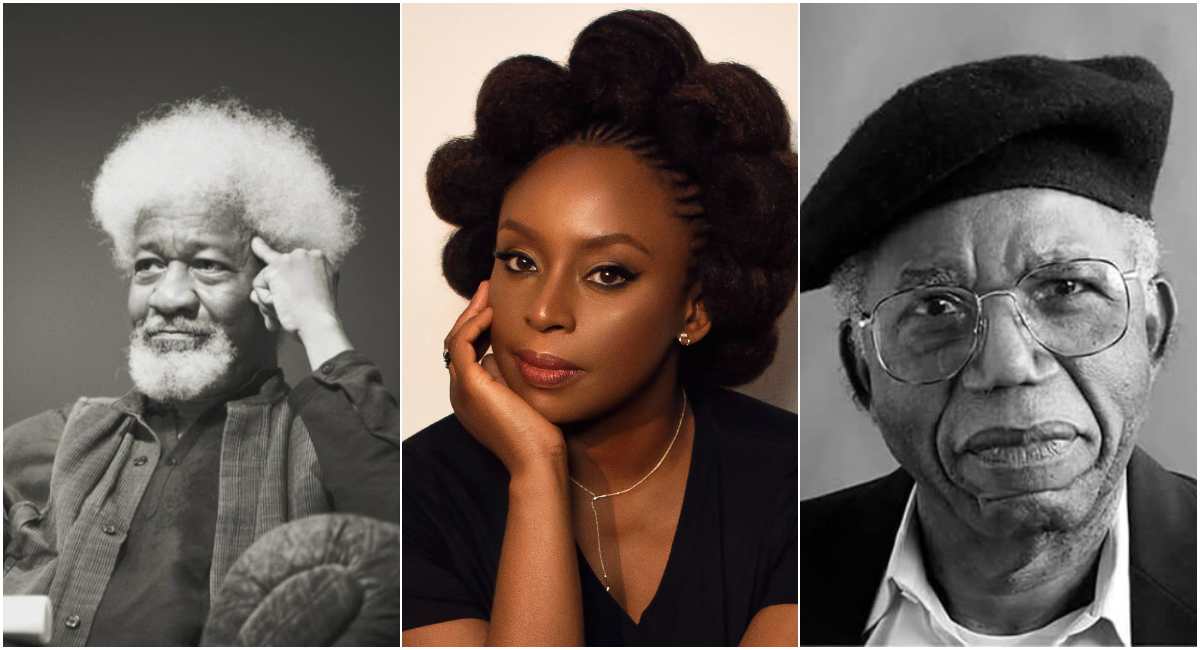
Typically, on Independence Day, people wave flags and dress up in green and white, enjoy parades, or post patriotic quotes or think pieces about the country’s state on social media.
An alternative is to pause, reflect, and reconnect with the story of who we are as a people, and where we are going.
One of the most powerful ways to do that is through books. Books carry memory, identity, and vision.
They transport us into our past, challenge our present, and inspire our future. Here are five extraordinary books that will leave you enlightened, proud, and hopeful.
READ ALSO: From Hustle to Heartbreak: Nigerians Share Brutal Family Money Struggles.
1. There Was a Country by Chinua Achebe
If Independence Day is about remembering the road that brought us here, Achebe’s There Was a Country is compulsory reading.
In this deeply personal memoir, Achebe reflects on Nigeria’s most painful chapter, which is the Biafran War.
Written with honesty and grace, Achebe does not only recount history; he also shares how it shaped his life and the country’s soul.
You feel his love for Nigeria on every page, even as he mourns its divisions. It gives us wisdom for the future by confronting the mistakes of the past.
2. Half of a Yellow Sun by Chimamanda Ngozi Adichie
Independence Day should also remind us of resilience —the ability to rise from ashes. Chimamanda Adichie’s award-winning novel Half of a Yellow Sun does exactly that.
Set during the Biafran War, the novel narrates the lives of Ugwu, Olanna, Kainene and Richard in a heartbreaking yet deeply human story.
Adichie does not just tell history; she makes you feel it throughout the pages – the hunger, the fear, and the love that refuses to die even in war.
Fair warning, though, this novel is a tearjerker, and you may find your mind overwhelmed by the cliffhanger.
READ ALSO: Chimamanda Ngozi Adichie: Full list of her books (which have you read?)
3. The Man Died by Wole Soyinka
Reading a book written by Wole Soyinka may feel like reading an advanced Thesaurus, but The Man Died is a must-read.
Written from the depths of imprisonment during Nigeria’s brutal military era, Soyinka lays bare the dangers of silence in the face of oppression.
Each page confronts you with the reality that freedom is never given but demanded, often at great personal cost.
What makes this account unforgettable is Soyinka’s refusal to bow to fear.
His voice, sharp and unrelenting, insists that truth must be spoken, even when the price is isolation and suffering.
4. Born on a Tuesday by Elnathan John
Elnathan John’s Born on a Tuesday offers a haunting yet deeply intimate journey through northern Nigeria.
Set against the backdrop of religious conflict and political decay, the novel tells the story of Dantala, a boy caught between survival and belonging.
John writes with raw honesty, peeling back layers of extremism, poverty, and vulnerability to reveal a world where innocence is tested at every turn.
This is not a distant or made-up narrative. It is indeed today’s Nigeria, complex and often heartbreaking.
Yet within the chaos, John captures fragments of tenderness, faith, and resilience.
READ ALSO: 7 Reasons Nigerian students spend more on gadgets than on books
5. Things Fall Apart – Chinua Achebe
Chinua Achebe’s Things Fall Apart is more of a history book than a novel, but it reads interestingly and captivatingly as one.
Set in pre-colonial Igbo society, it follows Okonkwo, a man whose strength mirrors the endurance of his culture, even as the winds of colonialism threaten to uproot it.
Achebe preserved his culture’s memory, showing us the dignity, rituals, and struggles of a world on the brink of change.
If you have ever wondered what Nigeria once was, this book is a compass. It reminds us that culture is identity, and identity is power.
In Conclusion
Flags will be raised, parades will happen, and everyone will go about their usual activities on Independence Day.
But if we are to progress and rise above Nigeria’s current situation, we must educate ourselves about the past to map out a great future where Nigeria works.
They say Knowledge is power for a reason.
